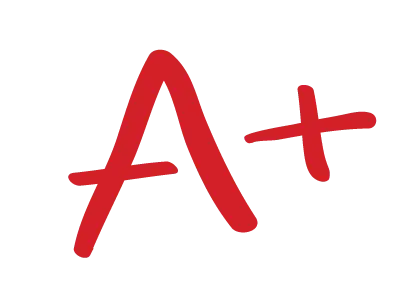The following essay deals with the use of Information Systems in the present HR world and its strategic importance in today’s Human Resource Management. It also discusses the impact of Human Resource Information Systems in the present business world and why the organisations should be concerned about the use of HRIS in various Human Resource Management activities. It also shows how HRIS can be used to achieve business goals. The essay also includes some company examples and their best HRIS practises to show the strategic importance of HRIS and wether the companies have achieved their business goals by the use of HRIS. The essay also includes a case study to demonstrate the strategic importance of the HRIS. The essay also provides a brief background of the organisation involved in the case study and explains how the organisation manages its HRIS to improve their Human Resource Management.
Human Resource Information Systems (HRIS) are being used in HR departments for the past many years now, not until more recently that their use has been changed to play a more strategic role in order to support HR staff, which particularly includes HR managers. The job role and the potential from HR managers have been changed over the last few years. This is due to the increase in the functional and strategic pressures on them (Armstrong 1984, 1994; Kinnie and Arthurs 1996; Ball 2000; Mabey et al 2000). Economic pressures have resulted in structural changes within organisations. The past image of HR role was that it is not a job that no one wanted nor had the skill to do. Senior management used HR managers to straight line the instability of organisational change, by doing so they were left free to go ahead with the strategic work of the business. The position of the HR manager gained status in organisations when compared to the previous years (Personnel Management 1993). HR actions have been distinguished both in terms of uniqueness and added value. Organisations can easily estimate this added value. In most of the cases, this does not just lead to the narrowing of the HR functions while many processes are being undertaken by line management, but what it does is that it fundamentally changes the role of HR specialists. This created a realisation that the new role of HR specialist’s is developing into a strategic provider to the business (Personnel Management, 1993). Despite this positive outlook some of the evidence from UK confirmed small use of IT in relation to analytical decision support activities (Kinnie and Arthurs 1992; Ball 2000).
WRITE THIS ESSAY FOR ME
Tell us about your assignment and we will find the best writer for your paper.
Get Help Now!In contrast to this, other evidence argues that the developments in HRIS is a close match to the ever changing need of HR managers and can assist by providing strategic level support to organisations (Soft world Report 1996, 1997; Robinson 1999). This identifies as an increase in need of adopting HRIS for the benefit of HR departments.
HR managers highlight the ever changing role of HR directors and managing directors. The evidence shows us that that this change in trend is taking place at an increasing pace and that HR managers would make use of HRIS in order to achieve improved performance and that “removing routine administration allows them to become professional consultants to the rest of the organisation” (Soft world Report 1996,1997). This enables HRIS to present quality information to the board which enhances informed decision making (Soft world Report, 1996, 1997).
This research also considers new roles which are emerging such as consultancy. Edward (Soft world Report 1996) believes that by giving importance to HRIS it will facilitate strategic working and also lower-level workings which include the designing of employee reward systems. Different levels of the use of HRIS have its own issues which are associated with it which includes input errors which are made by users when compared to the system design errors (Liff 1997; Laudon & Laudon 2002). The call for information varies with the different levels of organisational chain of command. The information that is required by senior managers is entirely different from the information required by the operational level workers such as the board of directors and senior managers require information such as executive reports and summaries where as managers at operational level need more day-to-day information, and HRIS provides them with the information required for this.
Edward (Soft world Report, 1996) mostly places her emphases on the tangible benefits of HRIS this includes much faster response of HR managers to the organisational management while some companies have resorted to the more long-term view. She believes that HR managers could improve their company’s performance as well as their own performance and status within the company. By increasing their knowledge on the various packages which are available on the market and by knowing what they are capable of delivering (Soft world, 1996).
Both Edward and Rees (Soft world Report, 1996), have concluded that the use of HRIS should be seen as a platform for HR managers to improve their performance of their job roles more effectively and efficiently in the organisation. This issue was also argued by earlier authors (Gallagher, 1986: Broderick and Boudreau, 1992).Gallagher (1997) argues that the influence of HRIS on effectiveness is in four ways: Firstly, the emphasis is on the increase in productivity from the workforce, short term working, recruitment, transitory, and less redundancies. Secondly it lays emphasis on dealing with the increasing demands made by legislation these demands are related to HR practices and also the increase in need to put forward statistics for government. The third factor is the rate at which the computer technology is developing. The final factor is the increase in availability of HRIS at much lower costs. The professional body argues that the effective use of HRIS leads to efficiency (CIPD, 1999).
Speedy changes in the field of information systems (IS) in the last fifty years have had a strong influence on many of the modern organisations (Avison and Shah 1997; Chaffey 2003). Many organisations today are using IS to enhance the efficiency of the organisation. The writings of many IS writers such as Edwards et al (1995), Laudon and Laudon (2002), Renkema (2000), and, Elliott and Starkings (1998) say that the use of IS includes systems such as HRIS which have become widely spread in many organisations and most of the employees and also the departments of all types and levels of organisations have become heavily reliant on such systems. It is also reported in Soft world (1996/7) that there was a rise in the use of HRIS in the UK. The reduction in the cost of personal computers provided smaller businesses to gain access to both hardware and the hardware required for the use of HRIS (Ball, 2001). The efficient use of IS in an organisation will help them to increase efficiency, integration and effectiveness. There are three general uses of Information Systems in an organisation they are A) Business operations: This includes day to day actions of the organisation which includes actions such as producing its products or delivering its services. B) Management of organisation: This includes activities which are required for controlling and monitoring the everyday activities of the organisation in relation to its aims and goals. C) Strategic objectives: This includes the long-term goals and objectives of the organisation. A present-day use of Information System’s is more advanced which enables the organisation’s to make use of them in a very strategic way, as noted by Tyson and Fell.
The different types of systems available and their use are: Transaction Processing Systems (TPS): these are used to take on the day-to-day activities such as functions and transactions at the operational level. These systems also help in making decisions related to Operations such as stock control. Management Information Systems (MIS): MIS is used for forecasting or predicting the financial operation and also the give the graphical models which will provide a visual picture of the information. These systems help in making Management Control Decisions which include comparing of data or budget data. Strategic Information Systems (SIS): These “systems provi……………………………………………….
Are you having a hard time writing your papers in nursing, business, History, science, Health, Politics, law etc? Place your order with us and experience a hustle free.
Introducing our Online Essay Writing Services Agency, where you can confidently place orders for a wide range of academic assignments. Our reputable homework writing company specializes in crafting essays, term papers, research papers, capstone projects, movie reviews, presentations, annotated bibliographies, reaction papers, research proposals, discussions, and various other assignments. Rest assured, our content is guaranteed to be 100% original, as every piece is meticulously written from scratch. Say goodbye to concerns about plagiarism and trust us to deliver authentic and high-quality work.



